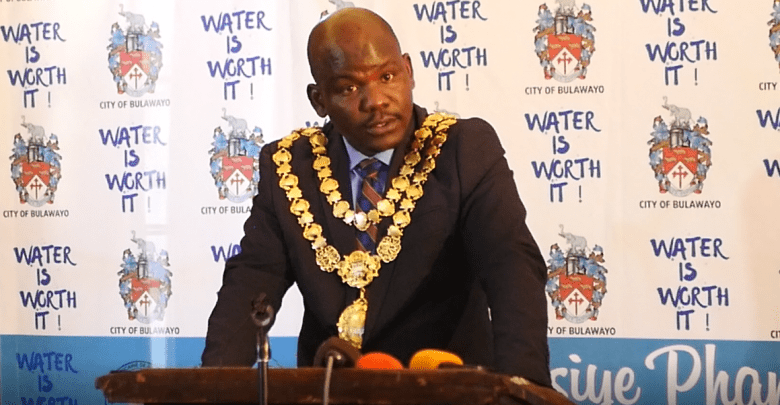Nyamandlovu borehole repairs begin

The rehabilitation of 15 boreholes at the Nyamandlovu aquifer has started with the Bulawayo City Council (BCC) pinning on the project to ease the water woes in the city.
The Government last month availed ZWL$10, 6 million to Zimbabwe National Water Authority (ZINWA) to enable the authority to rehabilitate the boreholes to improve the water situation in city.
Bulawayo residents are currently enduring a 120-hour water shedding period, a move that has seen some residents in some suburbs such as Pumula resorting to using sewage water for toilet use and for watering their gardens
The current water supply levels stand at 31 percent, with Lower Ncema dam earmarked for decommissioning this month.
Speaking during an online meeting hosted by Bulawayo Progressive Residents Association (BPRA) on Friday, Bulawayo Mayor Councilor Solomon Mguni said the works on the aquifer are ongoing to bring relief to the City’s water crisis.
“The Zimbabwe National Water Authority has started rehabilitating Nyamandlovu Aquifer boreholes in an emergency program to augment the city’s water supply. The team started this week, following the receipt of a $10,6 million grant from the Government to rehabilitate 15 boreholes,” said Mayor Mguni.
He said the local authority has also submitted to the government a list of some of the sustainable projects meant to address Bulawayo water situation.
“The potential to cover the gap is through implementation of the following sustainable projects which have been submitted to the government. The further development and extension of the Nyamandlovu Aquifer towards Sawmills in Tsholotsho. It is envisaged to supply an estimated combined (Rochester and Epping Forest) ground water potential yield of 20mega liters (ML)/day. Presently the Nyamandlovu aquifer scheme currently supplies on average 3-4ml/day out of potential of 20ml/day,” he said.
“Mtshabezi dam has the potential to supply maximum raw water of up to 25ml/day. Currently the dam can supply 1-17 ml/day. A potential of 8-10Ml/ day is available, if the bulk pipeline from Mtshabezi to Ncema water treatment works are upgraded and improved conveyance capacity by 32 to 40 percent.”
Mayor Mguni added that the city needs $910 million investment to finish some of the water supply augmentation for the City’s water supply.
“For Mtshabezi dam to Ncema dam water mains upgrading, the design and construction of 450mm water pipeline, 42km it needs $600million the water mains upgrading for Umzingwane to Ncema dam, the design and construction of a 900mm water pipeline, 11km long, the City needs $250 million.
“For the ground extension at Nyamandlovu Aquifer, in Epping forest for drilling and equipping the 20 boreholes and associated infrastructure, $60 million is needed,” he said.
He, however, noted that these projects are long term and are likely to be incomplete before the decommissioning of Lower Ncema this month.
“In the long term, the completion of the Gwayi-Shangani dam should ease the City’s water challenges and there after the completion of the Matabeleland Zambezi water project,” said Mguni.
Meanwhile, the Mayor added that the local authority has a shortage of water bowsers hence the delay in availing water to communities according to scheduled publicised time.
He revealed that the municipality is on working on setting up water kiosks in high lying areas.
“There is a challenge with increased demand of water bowsers and the worsening water situation. Efforts to avail more water bowsers to ensure that we always stick to the schedule are being made, but of course we have funding constraints that is why we are now thinking of setting up water kiosks on high lying areas,” said Mayor Mguni






